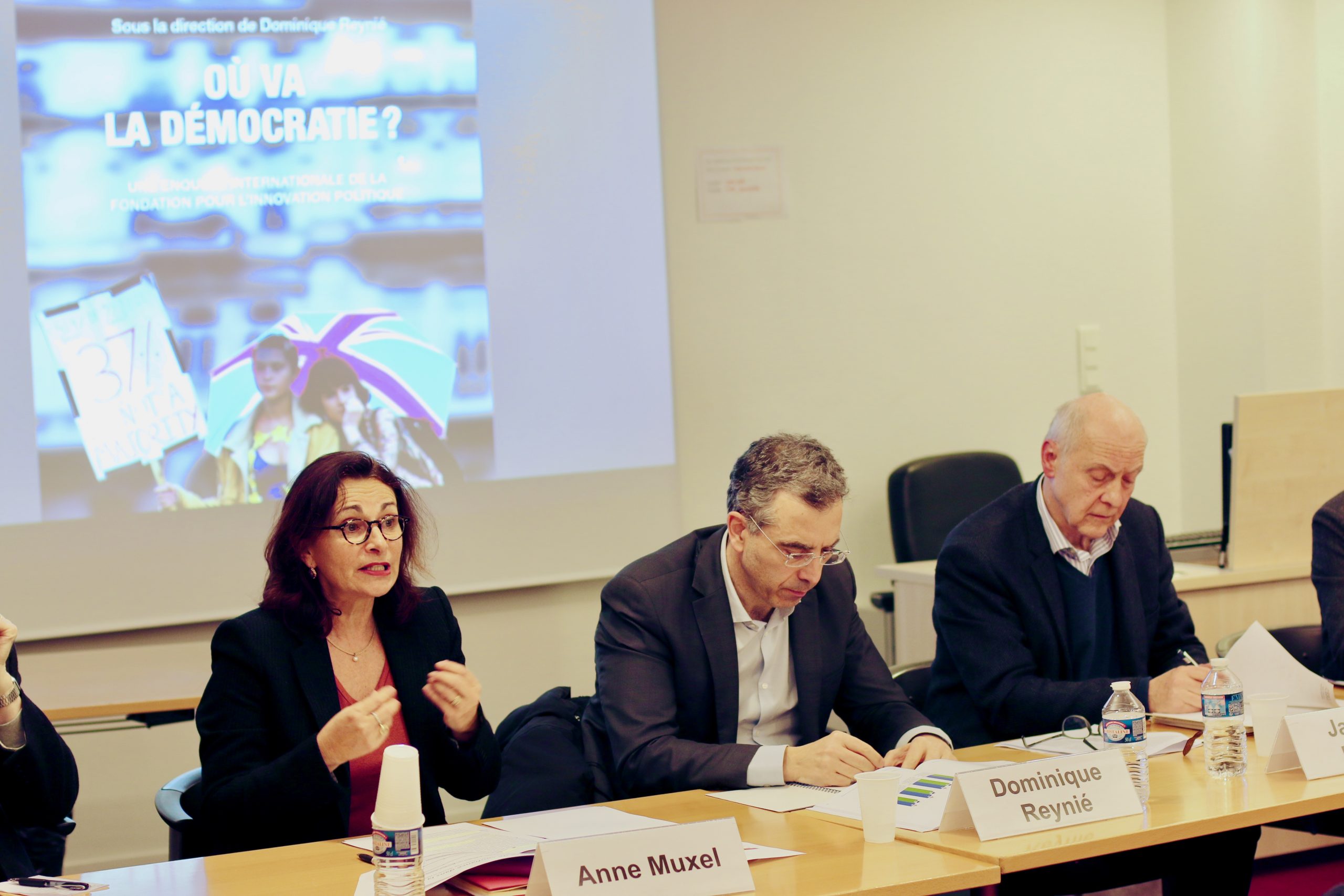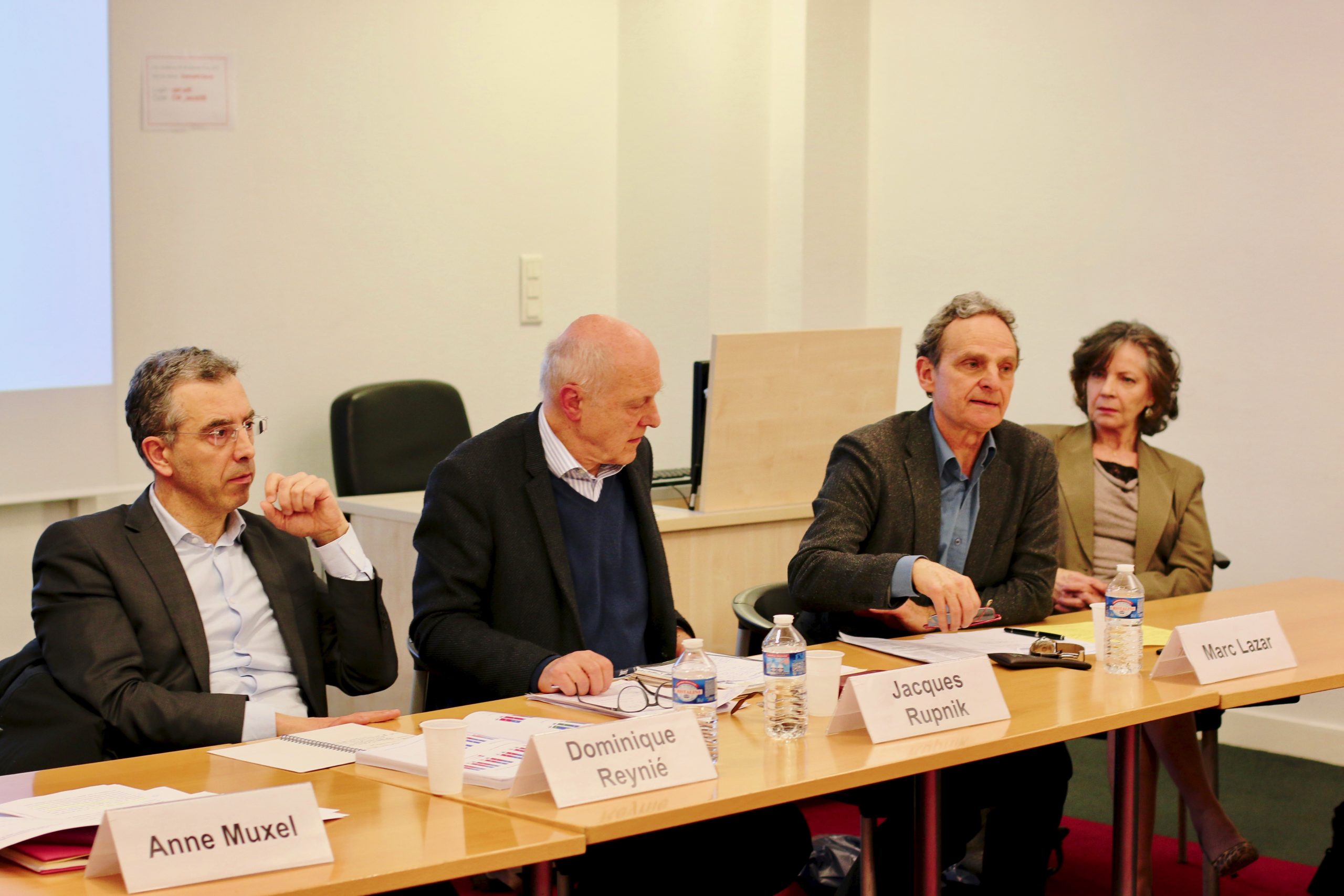What next for democracy? A trans-European comparative reflection at CERI

Comments (0)
Post comment

On 24 January, Jacques Rupnik, Anne Muxel, Marc Lazar and Dominique Reynié, four co-authors of the book What next for democracy? addressed the issues facing European democracies and their plural causes at the International Research Center.
For Dominique Reynié, Executive Director of the Fondation pour l’innovation politique and professor at Sciences Po, there is today an ambivalence between disillusionment with democratic political regimes on the one hand and the development of critical citizenship on the other. The Fondation pour l’innovation politique’s new survey, What next for democracy?, which was carried out by the polling institute Ipsos and administered a questionnaire in 23 different languages to more than 22,000 citizens in 26 countries, bears witness to this questioning of democratic regimes in the West.
For Anne Muxel, director of CNRS research in political science at the CEVIPOF, the loss of democratic credibility is particularly widespread among the younger generations. Among Europeans under the age of 35, confidence in political organisations is low (4 points less than that of their elders). The political class is widely suspected of corruption (+10 points separate the opinions of those under 35 from those aged 60 and over in Europe). This climate of mistrust towards democracy is also visible in the United States.
The weakening of the attachment to democracy today varies across the continent. In southern Europe, particularly in Italy, the uncertain economic climate is fostering aspirations for strong power. Marc Lazar, President of the Center for History at Sciences Po, also highlights the changing relationship between Italy and Europe: while the young Italian democracy was among the most Europhile countries, today only 45% of Italians are attached to the euro and 33% to the European Union. This rejection reflects the concerns raised by the European policy of economic austerity, local unemployment and inequality; these problems are exacerbated by the flow of migrants and refugees arriving on Italian soil.
In Eastern Europe, the first democracies that were born after communism are today those that are regressing the most, such as Poland, Hungary and the Czech Republic. The rate of trust in political parties is 11% in the Visegrád Group. And for 90% of the citizens the political elites are considered corrupt. According to Jacques Rupnik, Director of Research at Sciences Po, the populations of these Eastern European countries, who also benefit from a good economic situation, perceive the current democratic institutions as being incompatible with the idea of democracy itself. The main factors are religiosity, cultural wars, and migratory waves, although non-existent in these countries.



No comments.